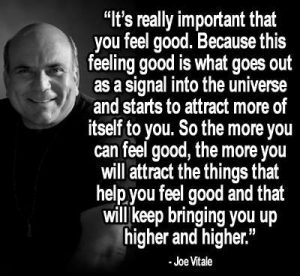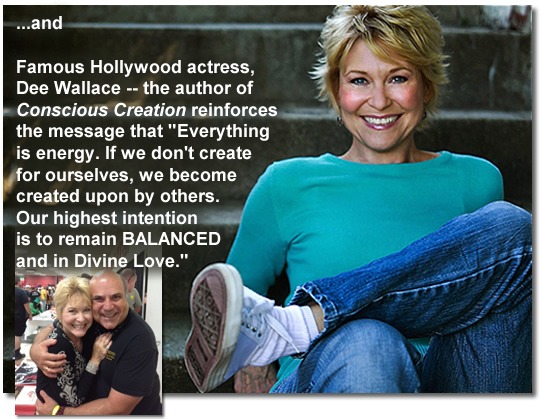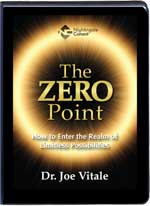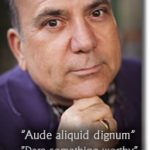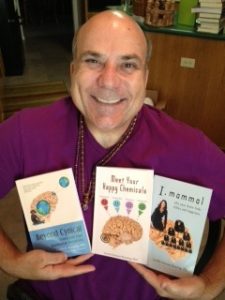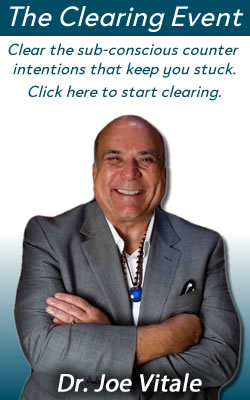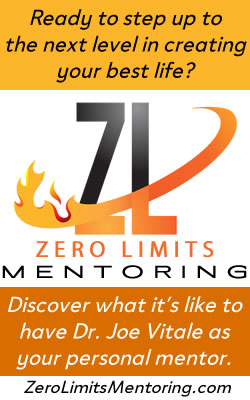Tag: animals
Your Brain Explained
My new favorite author just wrote the below “short explanation of nearly everything.” I love it and want to share it with you. It’s written by Dr. Loretta Graziano Breuning, author of Meet Your Happy Chemicals and other books I love. If the chart is hard to read, click on it to go to the author’s site, or download a full-sized PDF of the chart at http://www.innermammalinstitute.org/wp-content/uploads/2013/12/happy-chemicals-poster.pdf (Used here with her kind permission.)
Best Books of 2013
I read a lot. I devour books, old and new, and eagerly hunt for more. I visit Amazon daily and buy almost as often. I’m on a relentless quest to learn, grow and evolve. That said, what were the best books I read or reread in 2013? Here’s the answer:
Total Recall by Arnold Schwarzenegger.
Arnold’s book is riveting. I read it every night for a week, taking that long to relish every one of its 600+ pages. Not only is the man’s life fascinating and fantastic, but his life lessons are not to be missed. Love him or hate him, he has clearly lived a full life and has much hard earned wisdom to share. I loved this book so much I bought it in hardcover, paperback, Kindle, and even a leather bound, boxed, autographed edition. Read it.
Beyond Cynical by Dr. Loretta Breuning.
Actually, Dr. Breuning wrote three books that are all terrific and all on my “Best Books” list. They influenced my view of the world and myself. Beyond Cynical was the first I read, but I, Mammal and Meet Your Happy Chemicals are equally great. These books reveal that we have a core operating system in our brains not unlike a monkey’s. We are basically animals with wallets and purses. We are unknowingly driven by chemicals spurting in our brains, all designed to insure reproduction and survival. No wonder we do such odd things. I’ve been telling everyone to read at least one of Dr. Breuning’s books. I long to see new books from her, hopefully released early in 2014. True wisdom here. She’s my new guru.
How to Get People to Do Stuff by Susan Weinschenk
I love the brilliant books of Dr. Weinschenk. I interviewed her years ago due to her book, Neuro Web Design. This new book reveals 140 strategies for influencing people, including yourself. It’s fascinating to learn what makes us tick, and how we can be persuaded. I’m sure you want people to do something positive (buy your product or service, clean their room, stop smoking, lose weight, etc), so this book is a gem. Easy to read, too. If I were you, I’d grab all of her books, such as 100 Things Every Presenter Needs to Know. Very practical and breezy reading.
My Life and Work by Henry Ford.
Yes, I know this book came out in 1922, but I read it in 2013 and was inspired by Ford’s focus on serving people, employing people, and making a difference in the world. I also know his personal views of aspects of society were appalling, but I learned much about business from this autobiography, written with Samuel Crowther. He had a mind that thought in terms of service and systems, with money as a reward for good deeds, and for that, this book is well worth reading today.
Man On Wire by Philippe Petit.
Good Lord, this book caused me to hold my breath for what seemed like hours at a time. It’s the exhilarating true story of a man obsessed with walking a tight rope between the World Trade Center’s twin towers in 1974. It took him six years to plan and pull it off, and once he was (illegally) high in the air, he walked his tight rope between the towers for a full hour. Think of that! His writing style is also engagingly different, which makes this breathtaking book even more fun to read. I loved it.
Improv Wisdom by Patricia Ryan Madson
I first read this gem years ago but I have to put it on the list as I reread it and revisit it regularly and consider it devotional literature. It’s about trusting yourself and life. It’s a brief but deeply stirring read. I find it inspiring. I interviewed the author and found her as sweet as chocolate.
Transformation by Bill Phillips
One of the great joys of my life is knowing Bill Phillips. He influenced me with his Body-for-Life contests ten years ago, and he’s doing it again this year with his Transformation Camp. I interviewed Bill this year, have had a few lunches with him, worked out with him, had him speak at my recent event, and know he’s the real deal. His book is wise, and includes processes on forgiveness and more. It’s certainly not just about right eating and exercise. It’s a manual for living a healthy life. It’s a masterpiece.
Money Rules by Jean Chatzky.
I’ve read this little book’s 94 principles, revealing “The Simple Path to Lifelong Security,” several times since I picked it up at an airport. The author is apparently a hotshot on NBC and a contributor to Newsweek, but I didn’t know all that when I bought her book. Anything that can help us be aware of our relationship to money, and how others (including ourselves) lead us into parting with it, is worth the price of admission. A great companion to my own book, Attract Money Now.
Rick Rubin In the Studio by Jake Brown.
I’ll be creating my seventh album (seventh!) in late January, so I want to keep learning all I can about doing my best in the studio. Rick Rubin is the acknowledged genius at producing music that sells and lasts. This insightful volume of articles gives clues to how Rubin operates. The stories about him recording legends such as Johnny Cash, Neil Diamond, Tom Petty, Dixie Chicks, and so many more, are educational and inspiring.
The Book of est by Luke Rhinehart.
I’ve read this book numerous times over the last few decades, but am putting it on the 2013 best books list because it is a classic. Every time I read it, I learn something new about myself, other people, or just how to write a hypnotic book. If you haven’t read it, do yourself a favor and do so today. Just click right here.
There you go.
Let me know what you read in 2013 that moved you in some way, too.
Ao Akua,
joe
PS – I have numerous books of my own coming out in 2014, most notably the long awaited sequel to Zero Limits, called At Zero: The Final Secret to Zero Limits. It’s listed on Amazon right now. Go see.
Werewolves, Rabid Dogs and E.T.
What do werewolves, rabid dogs, and extraterrestrial beings have to do with my recent Attract Money Now Live event in Austin?
I’ll give you a few “word hints” – fun, clairaudient, healer.
Okay, okay, twist my arm, here are two more – movie star, bestselling author (nope…close, but not me).
Gosh, you are really persistent (I like that).
How about Dee Wallace, perhaps best known for her role in Steven Spielberg’s hit movie, E.T. the Extra-Terrestial?
Besides being a famous Hollywood actress still active in the film industry, Dee is also a “clairaudient channel” helping thousands of people in the world heal their lives through her work today.
As a featured guest speaker at my event, she had us laughing out loud at times, even as everyone scrambled to take notes.
It’s not often someone can deliver such profound, life-changing information – like her simple exercise for creating more money – while keeping us entertained.
You’ll definitely want to get the DVD recordings of the event (coming soon) and watch her outstanding performance onstage. It’s not to be missed.
It isn’t hard to make simple concepts complex, but rarely do we see complex concepts made simple.
Of course, some people might argue that “creation” as a spiritual principle of energy is not complex, and maybe it’s not – but the unconscious beliefs woven throughout our life can certainly make it seem that way.
“Actually,” Dee said, “It’s as easy as loving ourselves.”
For most people, that would be the tough part. But if you want to have more money, more wealth, more health, or more of any of the good things life has to offer, you absolutely have to cross that hurdle.
When I was in poverty and homeless, my self-esteem and self-love were so low it was in the gutter. It was a vicious cycle – the more I didn’t love myself, the worse things got – the worse things got, the more I beat myself up over it.
And I wondered why I couldn’t manifest!
I’d look in the mirror and think, “There must be something wrong with me.”
It wasn’t until I became aware that I began to turn the corner and consciously build my self-esteem. I started to use the same mirror in a beneficial way – to look for the good about myself.
For you, that might be the color of your eyes. It might be your education, experience, or a talent. The bottom line is you’re going to have to relax the criticism and wipe away the dark perspective.
As Dee said, “Our stories define us or disempower us.”
But first, you have to be willing to hear your story, and it’s hard to escape it when you’re staring yourself down in the mirror trying to come up with something positive.
You have to look at yourself as the Divine would look at you.
The Divine, an energy field which is all love, is not going to look at you and say, “You need to change.”
Instead, it would say, “I love you, period.”
I call this energy field of love “Zero.”
I’ve revealed everything I know so far in my newest book At Zero: The Final Secret to Zero Limits (coming next month) and my brand new Nightingale-Conant audio program, The Zero Point: Entering the Realm of Limitless Possibilities (shipping now).
Zero is Source…
It is alive and currently accepting requests…but it’s also trying to send you inspiration.
Are you listening?
“Phone home.”
Ao Akua,
PS – You can soon access the Attract Money Now Live home study course and relive the entire event by clicking right here.
The Happy Cynic
It used to baffle me to see people being cynical or negative. It was even more confusing when they were cynical or negative about the Law of Attraction, the movie The Secret, my book Zero Limits, or me.
That never made sense.
But I just had a revelation that parted the clouds and showed me the sanity behind the madness.
In short, people who are cynical or negative enjoy it.
They feel good when they find fault with others.
But why?
Answer: they get a burst of serotonin in their brain when they feel they are better than someone else.
It’s a status rush.
They are, to be blunt, happily cynical.
But there’s a problem with that “Smiling Pessimist” approach to life.
It all made sense to me when Dr. Loretta Breuning sent me her books. I didn’t (and still don’t) know her, but she dropped me an email and said she was sending me her three latest books, Beyond Cynical, Meet Your Happy Chemicals, and I, Mammal. Each sounded fascinating, and I truly wanted to see them all.
But I had no idea the first one I picked up would blow the lid off my mind and lead to a profound insight into human behavior, mine as well as yours.
Beyond Cynical: Transcend Your Mammalian Negativity, grabbed me as soon as I read the back cover copy:
“Cynicism feels good because it triggers the brain chemicals that make us happy. It triggers dopamine by making things seem predictable. It boosts serotonin by making you feel superior to ‘the jerks.’ It stimulates oxytocin by cementing social alliances. Cynicism relieves cortisol as you fight or flee in your mind. Negativity is natural, but you can go beyond it if you choose.”
Wow!
All those negative, cynical people were actually enjoying their tirades because their brain was flooding them with feel good chemicals.
Of course, they had no idea their negativity was a cocaine rush and almost as addicting.
They just felt it was “natural.”
And the more they did it, the more the “happy” chemicals flooded their brain, making them want to continue in the behavior, even when their negativity and cynicism hurt others.
They were addicted to the feeling good that comes from feeling bad.
The problem is, this cynical approach to life doesn’t improve life.
As Dr. Breuning writes in Beyond Cynical, “You may think your outrage serves the greater good, but it is just a habit wired into your neurons. You can do more for yourself and the world by going beyond it.”
The good news is that negativity and cynicism can be replaced with something far more healthy, happy, and productive.
After all, as Dr. Breuning points out, being cynical ultimately isn’t helping you or the planet in any constructive way. She says it makes you powerless. A smarter approach would be to train yourself to become realistically optimistic.
It’s called PARE in Dr. Breuning’s world. That stands for Personal Agency and Realistic Expectations. She explains it this way:
“Personal Agency is the awareness that you can meet your real needs through your own actions. Realistic Expectations are the knowledge that rewards are unpredictable, and frustration is not a survival threat. When you PARE, you enjoy the act of meeting your needs instead of lamenting the world’s failure to meet them for you.”
She goes on to explain that you can build a PARE habit “…in six weeks by spending one minute thinking about something good three times a day.”
Sounds easy enough.
I’ve got one minute three times a day.
You probably do, too.
According to the author, though, it may be tough going to overturn an old habit. After all, the neuron highway for negativity may be already paved, and completed before you were six years old. You have to go “off road” a few times to begin to build a new path. Once you do, though, the new habit will have a new highway and your new positive behavior will then be natural and automatic.
I know this firsthand.
Back around 1974, I sat on the steps of the house I lived in at Kent State University, feeling unhappy. A couple walked by, saw me sulking, and the woman said, “You look like the unhappiest man on earth.” I told the story to a college friend who said, “You’re just naturally depressed.”
Today no one says I am unhappy, negative, depressed, cynical or anything of the sort. Over time, I retrained my brain to see the positive in life, and to get my brain chemical rush from optimism. Today people say, “You’re lucky. You’re just naturally happy.”
Hmmm.
I was naturally unhappy once.
Today I’m naturally happy.
Which is true?
“Natural” seems to be something we can create and then it is viewed as natural.
While Dr. Breuning doesn’t talk about the Law of Attraction, she does explain that we get what we expect. She says, “We don’t imagine ourselves sifting the world for evidence that confirms our expectations. But that is what the brain is designed to do.”
Expect the world to be messed up and people bad, and you’ll find evidence for it. Your brain will “attract it” by making it seem obvious to you.
But by the same token, expect the world to be abundant and people good, and your very same brain will “attract it” by filtering out everything that doesn’t match your expectations.
One dopamine-triggering later chapter in Beyond Cynical describes all the huge topics many people complain about today — such as climate crisis, economic crisis, and social crisis — and balances them with a more objective and historic overview that proves things today are actually better and getting better.
Dr. Breuning isn’t saying the world is perfect; she admits to problems that need a PARE attitude to resolve. But she says things are better. A cynic won’t see the better, and may never see how to make current issues better. They, too, will get what they expect.
As I pointed out in the book, Zero Limits, and in the sequel, At Zero (coming in January), your brain can’t process all the 11,000,000 bits of data flying at you in every second, so it learns to filter out what you don’t need to know. But the filter it uses is based on what you expect.
What do you expect?
Until you become aware of how your brain works, you will expect what you were already trained to expect. For most, that’s just plain fear. To go beyond it, you need to retrain your brain to see something else.
I am loving Beyond Cynical because it is making me conscious of how my brain operates. Much of Dr. Breuning’s book draws from research into animal behavior, which makes sense as we basically are just animals with wallets.
She quotes Robert Ardrey, who said —
“We are not fallen angels, but risen apes.”
She’s not describing animals because they are a model of love, but because they are wired to survive in any way possible, doing things that feel good but that may not actually be good.
That same mammal programming is in you and me. It drives us to food, sex, and status. The insights we gain from her book can make us far more productive, kind, and healthy.
When I want to reach for something to eat, for example, I ask myself if this is what my body actually needs, or has my brain learned that food stimulates chemicals in my system, leads to the happy feeling of survival, and that that stimulation itself feels good?
No animal would think that deeply about food: see bananas, access survival odds of going for them with other monkeys around, and decide to eat and run or just run.
From that new awareness of how my mammal brain is operating, as a conscious human looking at my food choices, I can make a healthier decision.
And as I wrote this post, a part of me felt the serotonin of feeling superior to all the naysayers out there. I enjoyed writing this, because I feel the article is a benefit to mankind as it informs you of books that can make a difference. But I’m very aware that a feel good survival chemical went off as I wrote this for you.
I liked it, too.
These three books are influencing my view of the world. I now see myself, and others, as “risen apes.” We aren’t awakened yet. We are still driven by mammalian impulses to keep us surviving. With conscious effort, we can transcend these urges. With these books, you can get a head start.
You can probably draw numerous eyeopening insights about yourself and others by reading Beyond Cynical (and the other books) by Dr. Lorettta Breuning — that is, as long as you aren’t cynical about it.
Her website is Inner Mammal Institute.
Ao Akua,
PS — If you truly want to feel good, expand your mind, and step into the world of unlimited abundance where you don’t have to fight other mammals for bananas, be sure to register for Attract Money Now LIVE. Details at Attract Money Now LIVE!



